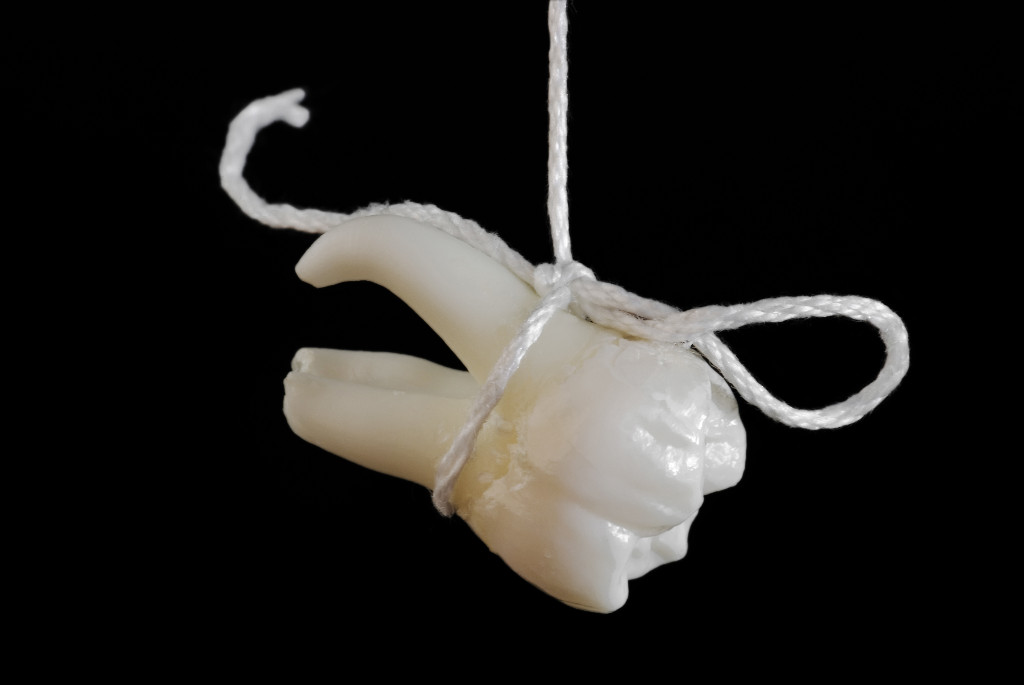
Advance Dental Extractions:
If you have a tooth that needs an extraction and it has been described as a difficult extraction or a surgical extraction then you should contact us. We perform all types of extractions from simple extractions to soft tissue and more advance surgical extractions, including broken teeth or bone impacted wisdom teeth and/or tooth root rests.
An extensive long post-graduation academic training and access to a large selection of medications, tools and instruments makes us able to provide a very fast and effective service for patients with acute dental pain. Our access to different suturing materials and in depth knowledge about suturing techniques and soft tissue handling will reduce the risk for infections and will result in a much faster healing time for our patients.
In order to minimize the risk for infection, pain, swelling and to aid healing please follow the advice provided here.
Following Surgery:
Following the surgery you may have minor discomfort. However, if you feel that it is too much then please come back to the practice.
Do not disturb the surgical side—this refers to playing with the area using your tongue.
If you feel the need, please take painkillers and refer to our advice regarding how to take them.
Smoking:
Smoking is prohibited following an extraction as it reduces the blood flow to the area, increases the risk for infection and delays healing.
Sutures:
If you have dissolvable sutures (your dentist would have informed you of this) then they should dissolve on their own within 3 weeks. However, sometimes if you are taking antibiotics they may not dissolve on their own. If they are bothering you come the practice after a week and the dentist will remove them for you.
If you have non-dissolvable sutures then you will need to come back in 2 weeks to have them removed by the dentist.
Painkillers
There are two types of painkillers that can be taken following a tooth extraction. If it is required they can both be taken up to their maximum doses together. They can be taken together due to the fact that they are two completely different drugs and do different things.
Ibuprofen:
You can take up to 1600mg of ibuprofen per day. This works out to be 2 x 200mg tablets being taken 4 times a day and this can be done for up to a week.
Paracetamol:
You can take up to 2500mg per day. This works out to be 1 x 500mg tablet 5 times a day for a week.
You must wait between 4 and 6 hours between doses on both medications. If you stagger the medication then you may find it more effective.
You should no longer need them after a week. If you feel you are still in need of them after a week please continue to take them but visit the practice.
Antibiotics
If you have been given antibiotics please read the following advice.
Do not stop taking the antibiotics until the end of the course or a professional tells you to stop. You should notify the dentist if you are allergic to any of these medication before you begin taking them.
Amoxicillin is to be taken once every eight hours.
Metronidazole is to be taken once every eight hours. Contact your dentist if you are taking warfarin regarding this drug.
Erythromycin is to be taken once every 6 hours . To reduce side effects it is recommended to have natural, live yoghurt.
Brushing
Brushing should be done as usual but try to avoid the surgical side for the next few days and if there are sutures please be careful as not damage the sutures.
Mouthwash
It is recommended that for the first week following extraction that you rinse with a disinfectant mouth wash. Any antibacterial mouth wash is ok but there is two main ones that we recommend. Do not rinse too violently as it will disturb the healing
Corsodyl is best used for 10 seconds twice a day. Do not use for longer than one week. If used for longer than one week it is likely to cause discoloration of the teeth.
Listerine is best used for 10 seconds twice a day.
Bleeding:
Following a tooth extraction, patients should expect some bleeding. Patients who are taking blood anticoagulants or in cases with more extensive surgeries such as implants or surgical extractions should expect slightly more bleeding.
However, you should not have excessive bleeding . If you experience excessive bleeding then roll a tissue/gauze in the shape of a sausage and then bite on it gently for 20 minutes. If you have sutures DO NOT do this as this can irritate the area more. Please contact the practice ASAP.
Bruising:
Following a more extensive surgery like implants or surgical extractions bruising and swelling may appear. This should start to disappear within a week or 10 days. Anti-inflammatory painkillers such as ibuprofen will aid a faster recovery. With some patients this bruising and swelling may last slightly longer.
However, if you are concerned about anything following an implant or surgical extraction please contact the practice.